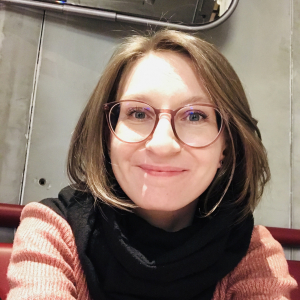Dissertationsprojekt
Subproject of the joint project "Adjustment and Radicalisation. Dynamics in Popular Culture(s) in Pre-War Eastern Europe"
Leibniz Collaborative Excellence 2023–2027
Head researcher(s): Matthias Schwartz (Leibniz-Zentrum für Literatur- und Kulturforschung, ZfL), Scholarly Responsibility: Juliane Fürst (ZZF), Stephan Krause (GWZO), Magdalena Marszałek (UP), Matthias Schwartz (ZfL)
The PhD research focuses on various forms of estrada verbal comedy (razgovornyi zhanr, spoken genre), which have played a significant role in Russian humor tradition and popular culture development. Their contribution to entertainment, indoctrination, and socio-political critique in 20th-century Russian society is particularly noteworthy.
Through analysis of comic routines and performances of the most influential Soviet and post-Soviet Russian comedians, the project aims to trace the continuity and breaks in the evolution of Russian language verbal comedy over the past 80 years. Considering Soviet and post-Soviet traditions and forms of verbal comedy within various contexts, including the history of popular culture, media, and the global landscape of humor production, it proposes a multilayered analysis of Russian verbal comedy genres and their transformation throughout late Socialism and the post-Soviet period.
This joint project explores the developmental dynamics of popular cultures in Belarus, Poland, Russia, Ukraine, and Hungary since the 1980s from an interdisciplinary and a comparative perspective. Headed by the Leibniz-Zentrum für Literatur- und Kulturforschung (ZfL) and in cooperation with the Leibniz Institute for the History and Culture of Eastern Europe (GWZO), the Leibniz Centre for Contemporary History (ZFF), and the Professorship for Slavic Literature and Cultural Studies (with a focus on Polish Studies) at the University of Potsdam.
